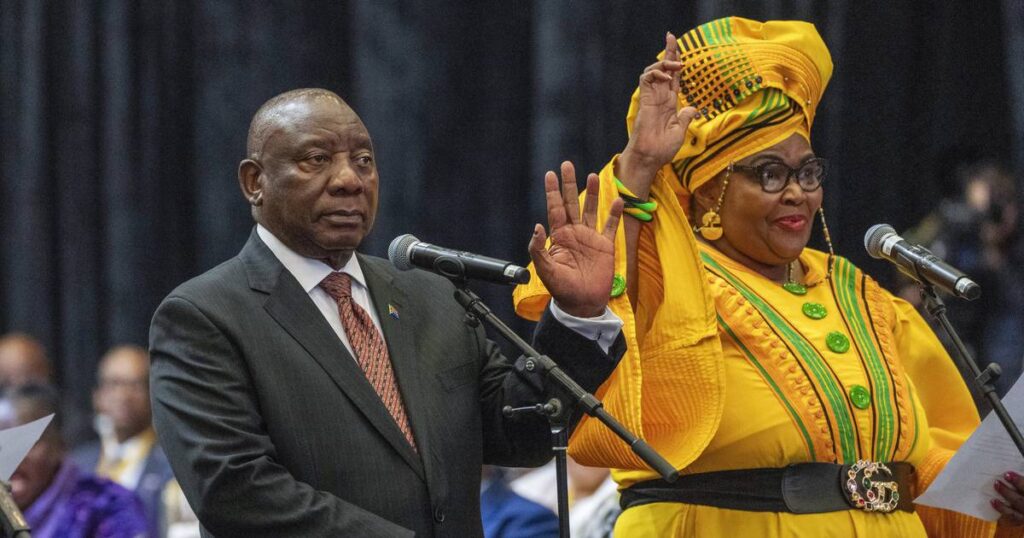In a momentous turn of events, Cyril Ramaphosa secured his second term as the President of South Africa after the African National Congress reached a groundbreaking powersharing agreement with opposition parties sympathetic to business interests.
The National Assembly witnessed Ramaphosa clinching an impressive 283 votes in his favor on Friday night, while Julius Malema, the leader of the Economic Freedom Fighters, garnered 44 votes. Notably, key opposition parties such as the Democratic Alliance and the Inkatha Freedom Party threw their weight behind Ramaphosa’s re-election bid. As part of this strategic alliance, these parties are set to receive cabinet positions and pivotal roles in the legislature.
Reflecting on this historical moment in Cape Town, Ramaphosa emphasized the imperative need for unity to fortify the country’s constitutional democracy and rule of law. He articulated his commitment to building a South Africa that caters to the needs of all its citizens.
The decline in support for the ANC during the 2024 national elections, where the party secured just above 40% of the vote compared to its previous 57.5% triumph, necessitated collaboration with opposition factions for Ramaphosa’s victory.
It is essential to note that in South Africa, the president is not directly elected by the public but rather by Members of Parliament who represent their constituents in the lower house. This system underscores the pivotal role of political parties in determining the country’s leadership.
Following intense negotiations behind closed doors, the ANC extended invitations to all parliamentary parties to partake in a government of national unity, culminating in an alliance that transcends traditional ideological barriers. This evolving political landscape signifies a paradigm shift in coalition politics, marking a departure from the ANC’s longstanding parliamentary majority since the abolition of apartheid in 1994.
Despite ideological disparities, the ANC and DA, with their centralist outlook and reverence for South Africa’s constitution, managed to find common ground to forge a robust coalition. This strategic collaboration signals a new era of collective governance, echoing the sentiment expressed by DA leader John Steenhuisen that South Africa is poised for a fresh chapter characterized by collaborative political engagement.
The coalition agreement stipulates reciprocal support and duties, with the DA slated to assume vital positions within Ramaphosa’s administration, National Assembly, and provincial governments. Moreover, provisions outlining decision-making processes, conflict resolution frameworks, and policy formulation guidelines underscore the meticulous planning aimed at steering South Africa towards a prosperous future.
